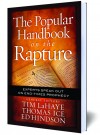
Evangelicals: Stand Up for Jews! – Part 2
The Great Dysfunctional Blessing
The Jews’ state of separateness, combined with cycles of oppression and their fervent belief that they have a future, contributed to the crucible from which were forged great achievements. This incredible state that God has cast upon them—in a sense, ensuring their survival and the fulfillment of the prophecies—brings to mind Johnny Cash’s famous song, “A Boy Named Sue.”
Not at all attempting to belittle this topic, consider the song’s central message. The story is told of a father who would not be around to raise his son, so he named him “Sue.” Because of the ridicule and trouble that this name would bring the boy, the father was sure he would survive.
In this sense, God has also marked the Jew. After He divorced and abandoned them to the Diaspora, they were called to continue to be separate; to keep the Sabbath and dietary laws. These differentiating practices no doubt contributed to their persecution. Albert Einstein reportedly said, “It may be thanks to Antisemitism that we are able to preserve our existence as a race; that at any rate is my belief.”
So, we see that a repetitive and chronically depressing cycle has played out over the millennia. Wherever and whenever Jews were allowed an environment to do so—out of the crucible of their oppression—they prospered. The nations in which they resided also prospered. Then, usually, jealousy or some other type of loathing set in, and they were expelled, suppressed, or murdered. Why? While there are many reasons, one factor certainly always played a role.
Money and the Jew
The world is thankful for the many achievements of the Jewish people, the many Jewish Nobel Prize laureates (about one-fifth have been Jewish), the great inventions and arts. We see that the Jew has excelled in almost every faculty. Gentiles laud Jews for these achievements. Few would feel jealous that many of the greatest violin soloists were Jewish, or that an outsized number of the Boston Symphony Orchestra may be Jewish.
Yet, there is one area that has almost always unleashed a renewed hatred of the Jew—“the love of money.” It seems that the Jew is often connected with the topic of money. Is this reputation deserved? To no surprise, the Koran (written in the 7th century) makes this claim about the Jews: “They delight in twisting words and distort even the word of God. They break their contracts and are treacherous. They hound the people for money. They boast of special privileges in [the] life to come, yet cling tenaciously to life on this earth.”
But now we tread on a charged topic. Therefore, before considering this issue any further, a review of history and facts is first necessary, to ensure that we present a balanced answer.
 To begin, that money should be such an effective instrument to incite the persecution of the Jew, should come as no surprise. It is important to understand the dynamics at play here, so as not to fall prey to this nefarious cycle. Crucial to remember is that the love of money strikes at the very core of mankind’s susceptibly corrupt nature. According to Apostle Paul, “the love of money is the root of all kinds of evil” (1 Timothy 6:10). An improper attitude to money, whether jealousy or obsession, is an extremely potent lure to destruction for both Jew and Gentile.
To begin, that money should be such an effective instrument to incite the persecution of the Jew, should come as no surprise. It is important to understand the dynamics at play here, so as not to fall prey to this nefarious cycle. Crucial to remember is that the love of money strikes at the very core of mankind’s susceptibly corrupt nature. According to Apostle Paul, “the love of money is the root of all kinds of evil” (1 Timothy 6:10). An improper attitude to money, whether jealousy or obsession, is an extremely potent lure to destruction for both Jew and Gentile.
The second point to realize is that there is no mystery as to the basic requirements of accumulating capital. Simply viewed, it takes time, disciplined saving, and only a little bit of extra effort. Were you to save only 2% more of your earnings than your neighbor every year and work only 2% harder (everything else being equal), it would take only 25–35 years for you to be at least twice as wealthy as your neighbor. It is not unusual to see immigrants work harder. Why? They feel a more urgent need to establish themselves. Imagine how much more disciplined and striving a people would be that throughout history has been persecuted. It is no surprise that such people generally do become wealthier, if allowed the opportunity.
Lastly, though Jews in America have become wealthier than the general population in the past half-century, this is usually taken far out of context. To begin, many immigrant groups have risen to prominence or above-average achievement in one sense or another. This is true for Asians, Hindus, Arabs, and others. They have higher incomes as a group and a much greater concentration in professional job categories such as medicine and academia. So, why pick on the Jews?
While many today believe that various Jewish lobby groups have significant influence upon the American government, their impact is certainly debatable. It could just as easily be said and proven that Arabs have even greater influence. There is no contesting the fact that America, for example, has had a very special relationship with Saudi Arabia, or even Kuwait. America has sent a number of military units into the Middle East to protect the interests of these countries. However, for some reason, this influence does not elicit as many howls of protest.
We come back to this main point: Whenever the Jew has been allowed to prosper, eventually money has played a role in subsequent persecution. Invariably, the Gentile took great pleasure in stripping Jews of their homes and wealth. Even governments and kings would participate in these confiscations. For example, during the expulsion of the Jews by the King of France, Philip Augustus, in 1182 AD, and King Ferdinand in 1492, who required that 20% of all debt repudiation to Jews accrue to him.
Thoughts to Ponder
We come back to the role of the Gentile throughout history in relation to the Hebrews. It would be at their hands that the Jew would suffer. History books are full of unspeakable atrocities and injustices. A Gentile can only remain in graven silence at the specter of this gargantuan evil.
Jesus Christ says of Himself through the prophet Zechariah: “After he has honored me and has sent me against the nations that have plundered you—for whoever touches you touches the apple of his eye—I will surely raise my hand against them so that their slaves will plunder them. Then you will know that the LORD Almighty has sent me” (Zechariah 2:8-9).
We are alerted to understand that just because God has decreed a disciplining or punishment upon His people, it does not absolve Gentile people and nations whom He might use as His willing instruments to do so. The example of Babylon’s role in the Old Testament illustrates this point clearly. While the prophets far in advance identified Babylon as the tool that God would use to bring His judgment against Judah, it was still counted as evil that this nation would touch Jacob. “But when the seventy years [of captivity] are fulfilled, I will punish the king of Babylon and his nation, the land of the Babylonians, for their guilt…” (Jeremiah 25:12).
It was the same for the Edomites, the descendants of Esau. Though Esau was the brother of Jacob, his progeny was punished for their violence and plundering of the Jews (see Joel 3:19; Amos 1:11). If this was the case, we can be sure that members of the Church will surely be accountable for their deeds and thoughts against them.
While God has been the author of the Jews’ sentence into the Diaspora, both Gentile and Jew have been complicit in carrying it out. However, a Christian need not—must not—be part of these injustices, though God may have allowed the Gentile role in this manner.
Though God decreed this time upon our brother, the Jew, we still individually have a choice in the matter. We dare not be part of this sin, for it is indeed something that will be severely punished. As the Bible says, “I will bless those who bless you, and whoever curses you I will curse; and all peoples on earth will be blessed through you” (Genesis 12:3).
In the third and fourth parts, we review the role of the false church and America in the prophesied timeline of the Jew.
This is part of a re-edited, four-part excerpt from the 2009 book, Preserving True Riches in an Age of Deception and Trouble (secondary title).
Midnight Call - 04/2024










